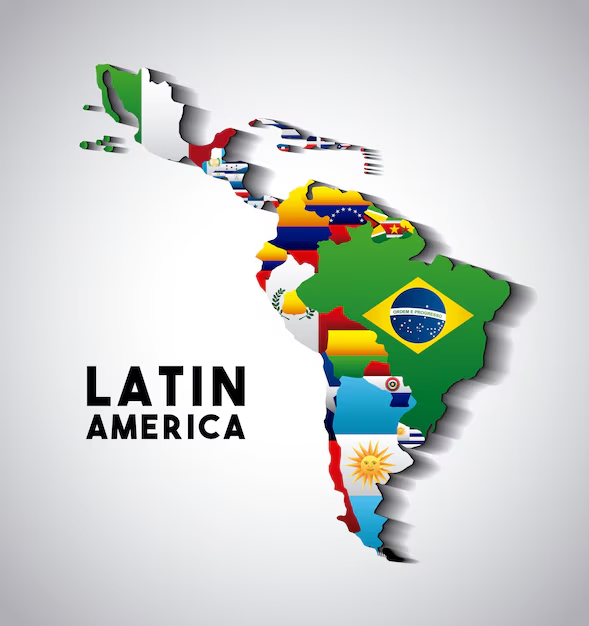Championing Indigenous Rights: A Critical Analysis of South American Foreign Policy
This article analyzes the integration of indigenous rights into South American foreign policy, examining progress, persistent challenges, and pathways toward a more equitable future for indigenous communities. We will explore this complex issue through the lens of several key concepts: decolonization (the dismantling of colonial power structures and ideologies), participatory governance (inclusive decision-making processes that empower marginalized groups), sustainable development (economic growth that respects ecological limits and social equity), and social justice (fair distribution of resources and opportunities, addressing systemic inequalities). Understanding these interconnected concepts is crucial for fostering genuine pan-American unity and inclusivity.
I. Progress and Achievements: Legal Frameworks and International Advocacy
Significant progress has been made in acknowledging historical injustices against indigenous populations. Many South American nations have enacted legal frameworks explicitly protecting indigenous rights, often drawing on international human rights instruments like the UN Declaration on the Rights of Indigenous Peoples. This represents a shift from assimilationist policies towards a recognition of indigenous peoples' self-determination. This legal framework, however, must be viewed through the lens of the theory of critical legal studies, which examines how law can both uphold and challenge power structures. Effective implementation requires robust enforcement mechanisms and community engagement, challenging the limitations of formal legal recognition alone. The application of participatory governance models, such as community-based natural resource management, empowers indigenous communities to directly shape policies affecting their lives. Furthermore, the rise of international advocacy by South American nations within multilateral fora exemplifies the growing global recognition of indigenous rights, creating avenues for international cooperation and solidarity.
II. Securing Land Rights and Cultural Preservation: A Foundation for Sustainable Development
The recognition and protection of indigenous land rights are fundamental to their cultural survival and economic well-being. Secure land tenure, often enshrined in national constitutions and international agreements, provides the basis for sustainable development initiatives. The concept of territorial rights, as explored in environmental justice literature, underscores the intrinsic link between land and indigenous identity. Supporting indigenous-led initiatives for cultural preservation, including the revitalization of languages and traditional knowledge systems, is critical for maintaining cultural diversity and promoting cultural heritage tourism – a sustainable economic model for indigenous communities. Such initiatives align with the principles of cultural sustainability, ensuring the transmission of cultural practices across generations.
III. Persistent Challenges: Addressing Systemic Inequalities and Environmental Threats
Despite progress, significant challenges persist. Deep-seated poverty and inequality, exacerbated by historical marginalization and systemic discrimination, continue to plague many indigenous communities. Addressing these disparities requires comprehensive social and economic policies informed by the principles of social justice. A crucial aspect is improving access to quality education and healthcare, which requires both investment in infrastructure and culturally appropriate services. The application of capability approach, as proposed by Amartya Sen, focuses on expanding the capabilities of indigenous individuals to achieve their full potential, rather than solely focusing on income levels. Moreover, environmental degradation and climate change pose existential threats to many indigenous communities, particularly those dependent on natural resources. The integration of traditional ecological knowledge into sustainable resource management strategies, in line with principles of environmental justice, is crucial for building resilience and ensuring that indigenous communities have a voice in decisions affecting their environment.
IV. Promoting Inclusivity and Empowering Indigenous Voices: Overcoming Discrimination and Building Capacity
Discrimination and racism remain pervasive challenges. South American foreign policy must actively combat prejudice through promoting tolerance, respect, and inclusion – concepts central to the goals of decolonization. This requires addressing underlying structural factors contributing to discrimination, such as biased legal systems and unequal access to resources. Strengthening indigenous institutions and fostering inclusive governance structures is essential for empowering communities to effectively represent their interests. Capacity-building initiatives, aimed at strengthening indigenous leadership and participation in political processes, are paramount. Further, gender inequality within indigenous communities necessitates specific interventions to ensure the full participation of indigenous women in decision-making processes. The feminist approach to policy design stresses the importance of addressing gender-specific needs and empowering women to participate equally in the economic, political, and social spheres. Investing in youth programs that educate and empower young indigenous individuals to become advocates for change is essential for securing a sustainable future.
Conclusion and Recommendations
The integration of indigenous rights into South American foreign policy demonstrates notable progress, yet significant hurdles remain. A holistic approach, integrating legal frameworks with effective implementation, participatory governance structures, and sustainable development strategies is essential. Future research should focus on evaluating the effectiveness of existing policies, investigating the impact of different governance models on indigenous well-being, and exploring innovative solutions for addressing climate change impacts on indigenous communities. Addressing systemic inequalities, promoting intercultural dialogue, and empowering indigenous voices are key to building a more just and equitable future for all. The continued application of the theoretical frameworks discussed – decolonization, participatory governance, sustainable development, and social justice – provides a roadmap for creating meaningful and lasting change.
Reader Pool: Considering the interconnectedness of indigenous rights, sustainable development, and international relations, what innovative policy solutions can you propose to further advance indigenous self-determination within the context of South American foreign policy?




No comments yet. Be the first to share your thoughts!